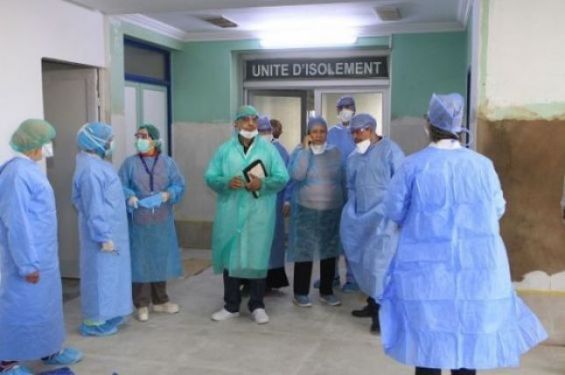In Morocco, the second phase of the epidemiological situation is marked by a rapid increase in the number of deaths, confirmed cases and critical ones. Anesthesia and resuscitation professor Ahmed Rhassane El Adib warned against this concerning trend.
The medical practitioner regretted in particular the «procedure followed for diagnosing, treating and monitoring patients», stressing that they are no longer adapted to the current situation. According to him, symptomatic patients find it harder to get tested.
For Ahmed Rhassane El Adib, the strategy adapted to the second phase of the pandemic «must be based on four fundamental axes : prevention, diagnosis, treatment and governance».
Updating the national strategy
He believes that it is primordial to «avoid the creation of places of contagion within the health system», by «favoring teleconsultation and telemedicine, and by relying on call centers».
For diagnosis, he pleads for «increasing the capacity of RT-PCR tests with a territorial distribution according to the epidemiological situation and favoring speedy results».
«We must admit that the figures announced daily are conditioned by the number of tests carried out and therefore do not reflect the reality of the epidemiological situation, since a large number of patients do not have access to tests or avoid being tested».
By the same token, the health expert revealed that «the number of severe and critical patients declared does not reflect the actual number in any way, since the majority of patients hospitalized in the Covid intensive care units are hospitalized before getting tested».
El Adib underlines that the number of tests cannot increase without a national production of PCR tests, the opening of new laboratories, and the establishment of mobile laboratories.
As for rapid antibody tests, «they are not valid for the initial diagnosis», according to the doctor, who recalls that «the results are negative when the patient is in the early stages of the disease». He recalled that «they can only be used for patients in intensive care units for example or professionals working in certain fields».
Better targeting of early treatments
Taking into account the current epidemiological evolution, the professor urges to «immediately treat each person presenting flu-like or respiratory symptoms, without focusing on the tests», which is not yet the case.
The doctor also recommends providing early treatment modalities, involving primary care practitioners, in the public and private sectors, to standardize treatment according to a national protocol.
Pr El Adib also calls for a more direct involvement of private clinics, in accordance with conditions defined in terms of access to health, especially in regions with limited capacity in intensive care.
«With the 200 anesthetists and medical resuscitators in the public sector, already poorly distributed on a nationwide level, some regions will be faced with insurmountable difficulties for the management of Covid, non-Covid, in maternity hospitals, emergencies, surgeries ...», the doctor concluded.




 chargement...
chargement...












